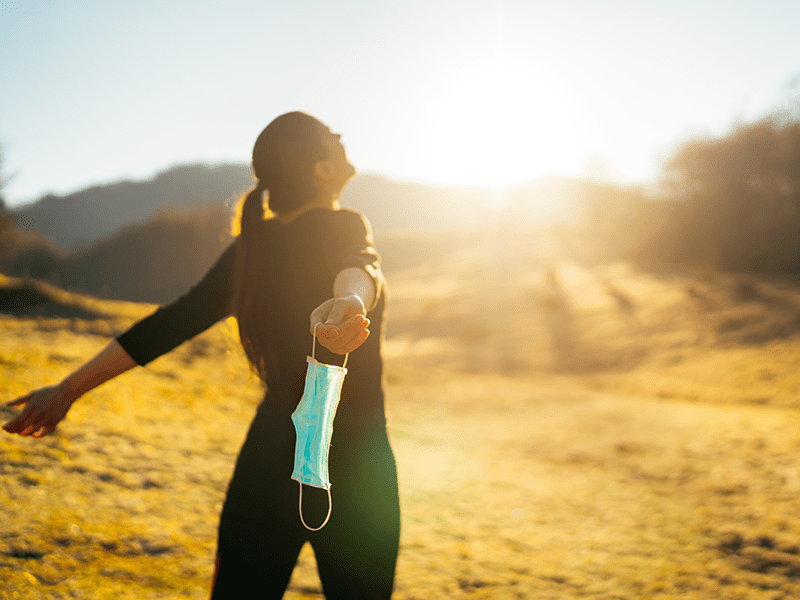India has kicked off the world’s largest covid vaccination drive on January 16, to bring an end to the coronavirus pandemic. Announced early January by the health ministry, the vaccination commenced with health and frontline workers being vaccinated. In the first phase, two indigenous vaccines, Covaxin and Covishield, will be administered to priority groups. Covaxin and Covishield – have been granted approval by India’s drug regulator Central Drugs Standard Control Organisation (CDSCO) as a restricted-use approval in an emergency, which means they can be used despite the companies not having completed clinical trials.
In conversation with TC46, Infectious Disease Specialist, Dr Kirti Sabnis of Fortis Hospitals, Mumbai addresses the popular questions regarding the newly released covid vaccine. Here, she talks about the difference between the two approved vaccines, CoWIN app and possible side effects.
1. India has approved two vaccines after careful research and testing. What are the differences between both?
Covishield has been developed by the scientists of Oxford University in collaboration with the pharmaceutical company AstraZeneca. In India, it has been manufactured by Serum Institute of India. Covishield vaccine has been developed using the virus — Adenovirus — that causes common cold infections among Chimpanzees. Its genetic material is the same as that of the spike protein of SARS-CoV-2 Coronavirus. The vaccine can be stored at temperatures between 2°C and 8°C. Combined analysis has an average efficacy of 70 per cent.
Covaxin is India’s first indigenous vaccine against Covid-19. It has been developed by Bharat Biotech in collaboration with the Indian Council of Medical Research (ICMR) & National Institute of Virology. Covaxin is an inactivated vaccine. With the currently available results of the initial trial, the seroconversion rate is 82.7.
Before diving into the process of vaccination, debunk some common myths surrounding Covid-19 Vaccination.
2. What are the vaccines and how do they work?
Vaccines contain weakened or inactive parts of a particular organism (antigen) that triggers an immune response within the body. This weakened version will not cause the disease in the person receiving the vaccine, but it will prompt their immune system to respond much as it would have on its first reaction to the actual pathogen. Some vaccines require multiple doses, given weeks or months apart. This is sometimes needed for the production of long-living antibodies and the development of memory cells.
3. What is the process of getting the vaccine? How will it be supplied to the public?
Currently, the vaccine is only delivered through the government. And will follow the following priority list which is:
- Healthcare workers (government and private): 1 crore
- Frontline workers (personnel from the state and central police department, armed forces, home guards, civil defence organisations including disaster management volunteers and municipal workers): 2 crore
- Prioritised age groups (above the age of 50yrs and less than 50yrs with comorbidities): 27 crore
Once these priority vaccinations are done, then the vaccination drive will be opened to the common public through the Co-win app.
4. Is there a mandatory registration process for being vaccinated? Can one get the vaccine without the registration?
The registration process is mandatory as follow-up doses, a batch number of vaccines is specific to the person. It also makes it easy to check the side effects if any.
5. How does the CoWIN app work?
The application is currently in the pre-product stage. It has the data of health officials who will be first in line to get the vaccination.
Once the app is up and running, it will have four modules:
- User administrator module
- Beneficiary registration
- Vaccination and beneficiary acknowledgement
- Status update
The logistics of it have not yet been revealed. The government may organise camps where people can go and officials will get them registered for the vaccine. In addition, surveyors and district administrators will also be able to register multiple beneficiaries.
6. Should a person who has antibodies/has survived COVID-19 take the vaccine?
Yes, the person having antibodies should take the vaccine. As we have seen, patients having antibodies are still susceptible to the second infection of COVID19.
7. How long does it take for the vaccine to work?
Two full doses of the vaccine administered around 4-6 weeks apart. As per the current trial data available, the vaccine should be able to protect individuals within two weeks for getting the vaccine.
8. What must we expect once vaccinated? Are there any side effects?
All side effects are mainly mild. Few people can experience:
- Injection site tenderness
- Headache
- Fatigue
- Myalgia (muscle pain)
- Fever
- Chills
- Nausea
9. Is there certain eligibility for the vaccine? Would it affect pregnancy, childbirth, fertility?
There are no specific eligibility criteria. None of the vaccines is currently approved for less than 12 years of age. Also, pregnancy and lactation are relative contraindications for both Covishield and Covaxin. It doesn’t affect fertility at all.
10. Will the vaccine work on an asymptotic covid infected individual?
Yes, it will. But the primary purpose of vaccination will not be served as that person already has the infection. Generally, people having any symptoms suggestive of COVID should not take the vaccine in that period. Although they can be vaccinated once the quarantine period is over and the symptoms don’t appear.
11. How important is it to be vaccinated? Is there any test a person should take before the vaccination?
Vaccination is important for two reasons:
- Individual protection as vaccination will prevent, if not reduce the severity of new COVID illness
- It will also help develop herd immunity, if 80% of our population is vaccinated, the COVID19 pandemic might be under control
An individual does not need to take any test prior to vaccination.

